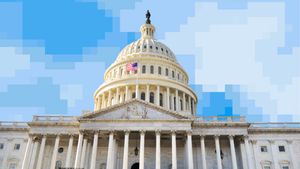New proposals that will allow copyright owners to subpoena generative AI companies for information on what content was used to train their AI models have been tabled in the US Senate by Peter Welch, the Democratic Senator for Vermont.
The proposals are set out in the Transparency And Responsibility For Artificial Intelligence Networks Act, which neatly abbreviates to the TRAIN Act.
Explaining why his act is needed, Welch says, “if your work is used to train AI, there should be a way for you, the copyright holder, to determine that it’s been used by a training model, and you should get compensated if it was”. As it currently stands, Welch’s statement announcing the act notes, “few AI companies currently share how their models are trained and nothing in the law requires them to do so”.
Elizabeth Matthews, CEO of collecting society ASCAP has welcomed the proposals, observing that, “The future of America’s vibrant creative economy depends upon laws that protect the rights of human creators. By requiring transparency about when and how copyrighted works are used to train generative AI models, the TRAIN Act paves the way for creators to be fairly compensated for the use of their work”.
Transparency regarding training datasets is a key priority for the music industry when it comes to the regulation of generative AI.
The industry also obviously wants clarification that AI companies that use existing copyright protected works to train their models must get permission from the relevant copyright owners. But that clarification is only useful if you know what works any one AI company included in its training data.
There has been much debate as to what kind of transparency obligations the law should put on AI companies, especially in the European Union where the EU AI Act already includes various transparency rules. Some argue that AI companies should publish full information about their training datasets as standard. However, the obligations in Welch’s act are much narrower than that.
An explainer provided by the senator states that, if made law, the TRAIN Act would enable a copyright owner “to subpoena generative AI models for training records ‘sufficient to identify with certainty’ whether their copyrighted works were used”. It adds, “only training material with their copyrighted works need be made available”.
It also states that, “subpoenas are granted only upon a copyright owner’s sworn declaration that they have a good faith belief their work was used to train the model, and that their purpose is to determine this to protect their rights”.
If an AI company then failed to provide the requested information, there would be a “rebuttable presumption that the model developer made copies of the copyrighted work”. Which means that if an AI company failed to respond to a subpoena, or failed to supply evidence proving that training had not used copyright protected works, then the courts would assume that copyright protected works had been used.
The Recording Industry Association Of America has also welcomed Welch’s proposals, with its CEO Mitch Glazier stating, “Senator Welch’s carefully calibrated bill will bring much needed transparency to AI, ensuring artists and rightsholders have fair access to the courts when their work is copied for training without authorisation or consent”.
Meanwhile David Israelite, CEO of the National Music Publishers’ Association, adds, “The TRAIN Act proposes an administrative subpoena process that enables rightsholders to hold AI companies accountable. The process necessitates precise record-keeping standards from AI developers and gives rightsholders the ability to see whether their copyrighted works have been used without authorisation”.
Various proposals for regulating AI have been made in Congress, including those that seek to introduce new US-wide rights to allow creators, performers and individuals more generally to protect their voice and likeness in the context of AI-generated digital replicas.
When it comes to copyright law, the boss of the US Copyright Office, Shira Perlmutter, recently said that both copyright owners and AI companies reckon current copyright rules are sufficient. However, they violently disagree on how those rules should be interpreted, which means there will almost certainly be calls for copyright law reform from one side depending on how some test cases in court work out.

